Jun 2019 1st Edition
Jun 2019 1st Edition Londekile
Translations
2 000 officers deployed for Presidential Inauguration
2 000 officers deployed for Presidential Inauguration JoyOver 2 000 police officers will be deployed in and around the Loftus Versfeld Stadium vicinity for the Presidential Inauguration on Saturday, Police Minister Bheki Cele said.
The Minister revealed this during a media briefing on the security state of readiness, shortly after addressing a police parade to be deployed to the event.
“This event happens every five years and it attracts the world. The world is upon us and this time, there is more interest. Besides the invited countries – Heads of State, Heads of Government and Ministers - almost 40 of them - there are more and more that are requesting to come but the Presidency (protocol) will deal with that,” he said.
Cele said police have been urged to “cool off” on the day as the ceremony is that of celebration.
The stadium is expected to be packed to capacity with more than 200 buses ferrying people from Limpopo, Free State, North West, Mpumalanga and Gauteng.
The Minister said the National Joint Operational and Intelligence Structure (NatJOINTS) has put together a comprehensive plan to ensure the smooth running of the inauguration.
Law enforcement officers deployed to the event include members of the South African Police Service, Tshwane Metro Police and members from other government departments to ensure effective and efficient route and stadium security.
“About 32 000 people are expected here: 22 000 from the provinces and 10 000 walk-ins. That spirit that must be enjoyed by those people must be shared with the police. That’s the call we are making to everyone. Remember police officers are human beings too, treat them as such. It is a big day for the country -- allow them to enjoy it,” he said.
The Police Ministry said the success of the event is dependent on the full cooperation of all those in attendance.
With gates opening at 3am, the public has been urged to arrive early to ensure the smooth flow of people and traffic.
A list of prohibited items has been published on the GCIS website, the Ministry said in a statement.
“Those who do not adhere to the restrictions set will have to surrender their items before entering the stadium. No persons under the influence of any substance will be allowed into the stadium for their own safety as well as the safety of others,” the statement read.
The NatJOINTS has also ensured that general safety and day-to-day policing is not compromised for all law-abiding South Africans for the duration of the event.
Restricted airspace
The airspace from the Pretoria City Centre will be restricted for a radius of 25 nautical miles from 8am to 4pm on the day of the Inauguration.
No Remotely Piloted Air Systems (RPAS)/Drones will be permitted to operate within the airspace for the duration of the event.
This restriction will not affect commercial air traffic.
Order of proceedings
After the rendition of the National Anthem, the President will continue with his address to the Nation. The President’s address will be followed by a flypast by the South African Air Force and SAA as well as a 21-gun salute. This salute will be conducted from Pretoria High School for Girls.
Pet owners of Sunnyside and the surrounding areas are advised to consider the following precautions during the 21-gun salute:
The ideal place for an anxious dog is to be indoors in a familiar place with the owner.
Make sure that pets have access to their most favourite spot. Create ambient noises and provide them with a treat.
Accreditation and park-and-ride
There will be a park-and-ride system for general access to the stadium from the Tshwane Events Centre. The shuttles will operate from 3am to 6:30pm.
“All the walk-ins for general access to the stadium must still be accredited through the accreditation service point at Afrikaans Hoër Seunskool, popularly known as Affies. This accreditation point will open from 3am and will close at 7am on Saturday and no one will be allowed into the venue without accreditation. We encourage people to arrive at the park-and-ride early to avoid disappointment,” said the Ministry.
Prohibited goods
Members of the public attending the occasion are advised that the following items are forbidden at the event:
- Alcohol or drugs
- Firearms or weapons
- Bottles or cans.
SAnews.gov.za
A new era has dawned in our country
A new era has dawned in our country LondekileFROM THE UNION BUILDINGS
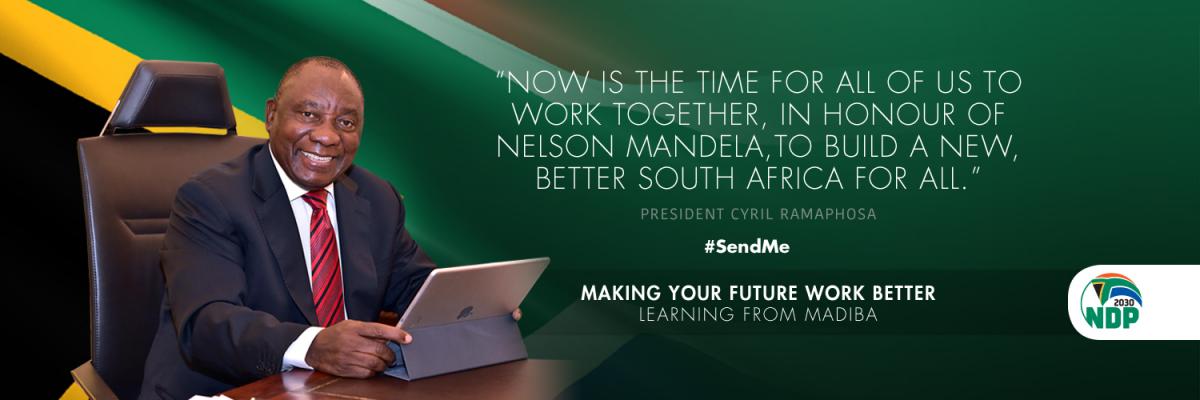
I am humbled by the trust you have bestowed upon me, aware of the challenges our country faces, but also alive to the fact that our people are filled with hope for a better tomorrow.
Twenty-five years have passed since that glorious morning on which Nelson Rolihahla Mandela was sworn in as the first President of a democratic South Africa.
In the passage of that time, our land has known both seasons of plenty and times of scarcity.
As the shackles of oppression have fallen away, they have felt their horizons widen and their lives improve in a myriad ways.
Through the irrefutable power of the ballot on 8 May, South Africans declared the dawn of a new era.
They have chosen hope over hopelessness, they have opted for unity over conflict and divisions.
We all want our children to have lives that are better than our own, to have work that is dignified and rewarding.
All South Africans yearn for a society defined by equality, by solidarity, by a shared humanity.
They yearn for a society in which our worth is determined by how we value others.
It is a society guided by the fundamental human principle that says: Umuntu ngumuntu ngabantu. Motho ke motho ka batho.
Muthu ndi muthu nga vhangwe vhathu.
Munhu yi munhu yi vanhu.
Our Constitution – the basic law of our land – continues to guide our way even at the darkest hour.
As a nation we therefore can no longer abide the grave disparities of wealth and opportunity that have defined our past and which threaten to imperil our future.
It is our shared will – and our shared responsibility – to build a society that knows neither privilege nor disadvantage.
It is a society where those who have much are willing to share with those who have little.
It is a society where every person, regardless of race or sex or circumstance, may experience the fundamental necessities of a decent, dignified life.
Let us declare before the esteemed witnesses gathered here that such a South Africa is possible.
Let us declare our shared determination that we shall end poverty in South Africa within a generation.
Let us declare that when we gather to celebrate the 50th year of our freedom there shall no longer be any person in this land who is unable to meet their basic needs.
Like our forebears who gathered so many years ago on a piece of veld in Kliptown to declare that the people shall govern, let us aspire to a future beyond the probable.
Let us forge a compact for an efficient, capable and ethical state, a state that is free from corruption, for companies that generate social value and propel human development, for elected officials and public servants who faithfully serve no other cause than that of the public.
We must be a society that values excellence, rewards effort and hard work and rejects mediocrity.
We must be a society that values its young people by creating a conducive environment for them to gain skills and be productively employed to develop our country.
Let us build a truly non-racial society, one that belongs to all South Africans, and in which all South Africans belong.
Let us build a society that protects and values those who are vulnerable and who for too long have been rendered marginal.
A society where disability is no impediment, where there is tolerance, and where no person is judged on their sexual orientation, where no person suffers prejudice because of the colour of their skin, the language of their birth or their country of origin.
It is you, the people of South Africa, who havse spoken.
Having taken the oath of office I am saying yes, South Africa Thuma Mina.
And I pledge here today that I will serve you, I will work with you, side by side, to build the South Africa that we all want and deserve.
A new era has dawned in our country.
Nkosi Sikelel’ Afrika.
Achieving the SA we want
Achieving the SA we want LondekilePRESIDENTIAL INAUGURATION
President Cyril Ramaphosa has called on business, labour as well as South African citizens, to mobilise all resources to address poverty, inequality and unemployment, as the country embarks on a new era, key to which would be forging an ethical state free of corruption.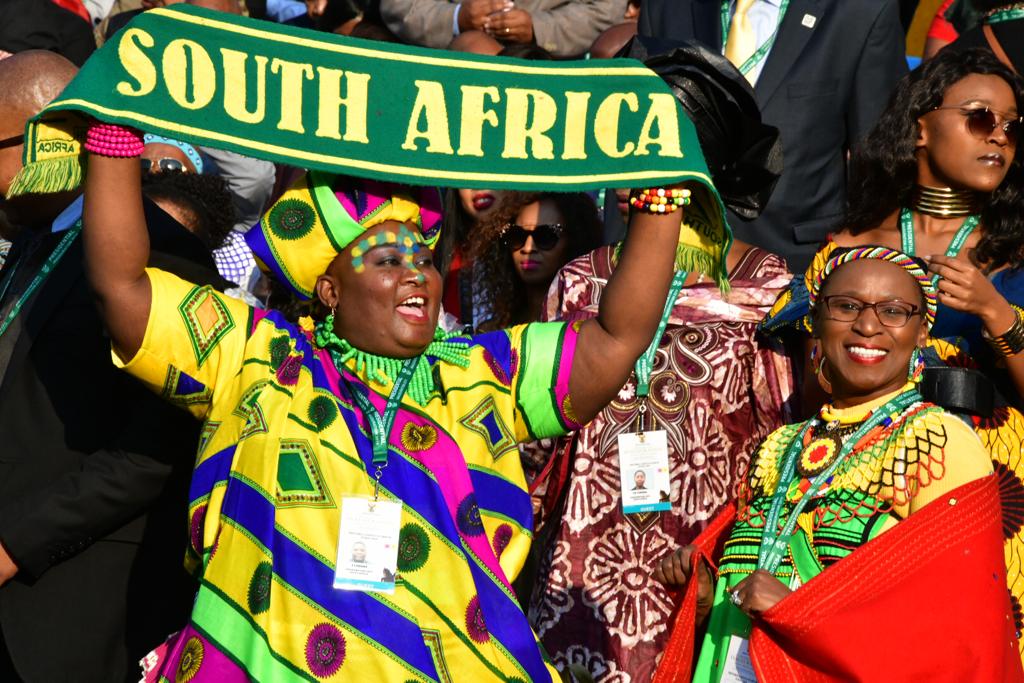
“Let us forge a compact for an efficient, capable and ethical state, a state that is free of corruption, for companies that generate social value and propel human development, for elected officials and public servants who faithfully serve no other cause than that of our people. We must be a society that values excellence, rewards effort and rejects mediocrity,” he said.
Acknowledging that the road ahead will be difficult, the President said the entire society would have to use courage, wisdom and perseverance to “achieve the South Africa we want.”
The President was addressing the country, shortly after being inaugurated as the sixth democratically elected President of the Republic of South Africa.
The inauguration was held at the Loftus Versfeld Stadium in Pretoria, under the theme: ‘Together Celebrating Democracy: Renewal and Growth for a Better South Africa’.
“Let us forge a compact for growth and economic opportunity, for productive lands and viable communities, for knowledge, for innovation and for services that are affordable, accessible and sustainable,” President Ramaphosa said.
He said South Africa must be a society that values its young people by creating a conducive environment for them to gain skills and be productively employed to develop our country.
“Let us celebrate the great strides we have made – demonstrated so clearly in the incoming Parliament – to raise the prominence and contribution of women in public life.
“Let us work together to fundamentally, and forever, change the relations of power between men and women. Let us end the dominion that men claim over women, the denial of opportunity, the abuse and the violence, the neglect and the disregard of each person’s equal rights,” he said.
The President said South Africa should build a society that protects and values those who are vulnerable and who for too long have been rendered marginal.
“A society where disability is no impediment, where there is tolerance, and where no person is judged on their sexual orientation, where no person suffers prejudice because of the colour of their skin, the language of their birth or their country of origin.
“Let us preserve our natural resources for future generations, as we work with greater purpose to end the human destruction of our world,” he said.
Be a blood superhero this June
Be a blood superhero this June angenithaJune is National Blood Donor Month, which means that every adult South African with healthy blood should consider joining this worthy cause.
Did you know that one blood donation can save up to three lives? The South African National Blood Service (SANBS) is always in desperate need of blood donors.
Blood donations can save lives in a number of ways. Blood is given to accident victims, cancer patients, children with anemia and women who lose too much blood when giving birth. Jacob Mohapi is an example of someone whose life was not saved just once, but twice, thanks to blood donations.
Mohapi received blood on two separate occasions after suffering terrible car accidents. 
“My first accident was back in the 90s. I sustained spinal injuries which left me in a wheelchair, and I lost my dad, granny and cousin. In the second accident, I had severe internal bleeding,” said Mohapi.
Doctors said that there was a good chance that Mohapi wouldn’t survive the second accident.
“They had to cut my chest to suction out all the blood that was inside, and blood was needed to replace the blood I had lost,” he said.
After he had recovered and discharged from hospital, Mohapi and his son Thabang went to several SANBS blood donation centres to thank donors.
“If it wasn’t for blood donors, I would not be alive today”, said Mohapi .
Another blood recipient, Thandeka Monageng, received two units of blood which saved her life when she experienced complications during childbirth.
“The thought of my child growing up without a mother made me realise how grateful I am to have another chance at life”. The SANBS normally only has around five days’ worth of blood stock available at any given point, which is why there is much urgency in getting more people to donate.
SANBS chief marketing officer Silungile Mlambo appealed to all South Africans to use National Blood Donor Month as an opportunity to become regular blood donors.
“The best gift you can give anyone is the gift of life. We know that South Africans have huge hearts and we call on them to fully embrace the spirit of National Blood Donor Month.”
*You can donate blood at your nearest SANBS blood donation centre.
Bursary turns young girl’s dream into reality
Bursary turns young girl’s dream into reality vuyelwanDeserving matriculants from poor backgrounds are receiving life-changing opportunities, thanks to a number of government bursary schemes and other empowerment programmes.
Nthabiseng Moralo’s dream of becoming an industrial engineer would have not come true if it was not for the Solomon Mahlangu Scholarship Fund.
When the 21-year-old completed matric in 2015, her mother – a low-income earner and the family’s sole breadwinner – could not afford to pay university fees.
She was determined for her daughter to get a good education, however, and when she was in Grade 11, her mother decided to rent two rooms in Munsieville near Krugersdorp so that Moralo would be closer to school.
The youngster repaid her mom’s sacrifice by working hard and ending in the top three of her matric class.
While still in matric, Moralo heard about the Solomon Mahlangu Scholarship Fund that is offered by the National Youth Development Agency (NYDA). She applied and received a positive response.
As one of the top achievers in Gauteng’s matric class of that year, the Gauteng Premier's office also offered a bursary but had to turn the offer down because it would not have covered all her education needs.
“I chose to go with the scholarship fund because it was a full bursary that covered my fees, accommodation, meals and stationery, which meant. I would not be financially stranded in the middle of the year,” she said.
With all her needs taken care of, Moralo could focus on her studies and graduated in record time in 2018 with a National Diploma in Industrial Engineering from the University of Johannesburg.
“Most young people where I come from start looking for jobs after matric because that is what they are exposed to, and some do not even complete matric. They look for jobs to help their parents with the family income,” she explained.
She urged that the NYDA and other government entities do more roadshows in rural areas to make young people aware of the opportunities available to improve their lives.
Developing young artists
Developing young artists UrsulaThe South African Theatre gives young people who dream of a life on stage or in the wings the chance to take the limelight.
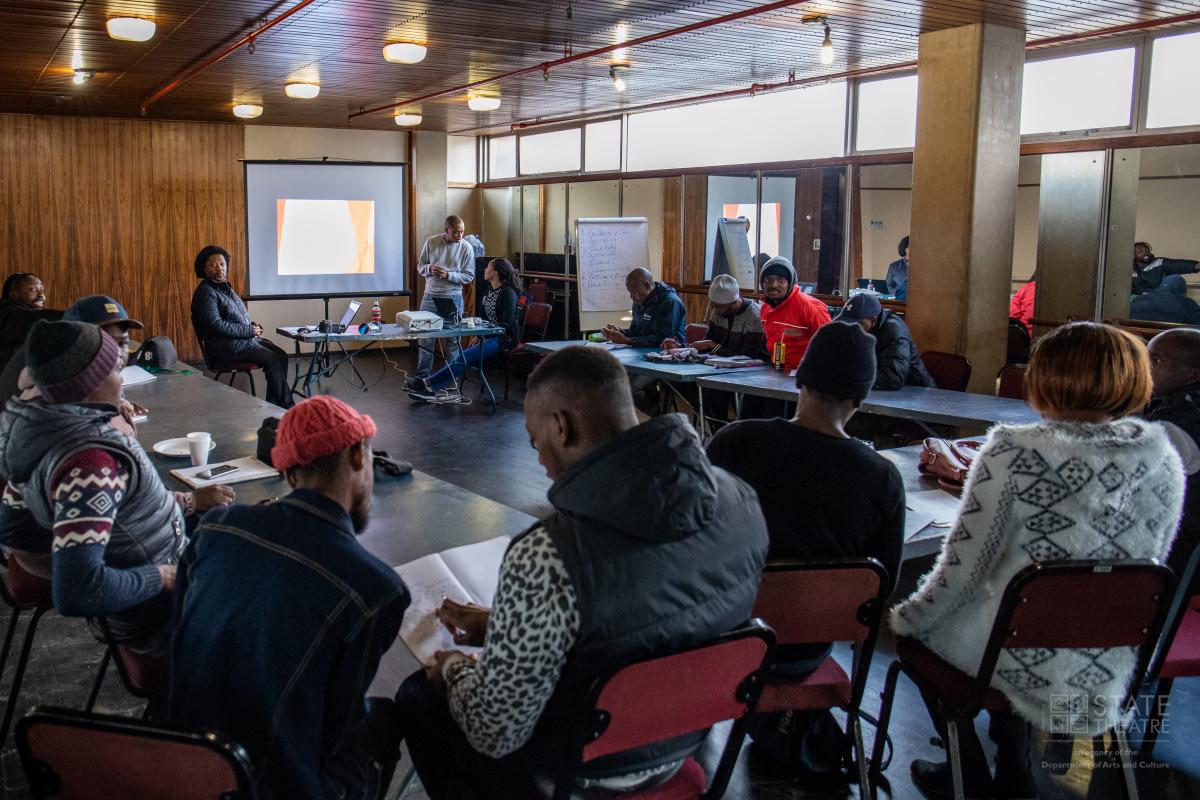 The South African State Theatre’s Education, Youth and Children Theatre (EYCT) department creates platforms for young arts practitioners through its outreach programmes, which offer vital skills to up-and-coming artists for free.
The South African State Theatre’s Education, Youth and Children Theatre (EYCT) department creates platforms for young arts practitioners through its outreach programmes, which offer vital skills to up-and-coming artists for free.
At the beginning of this month, young arts practitioners in and around eMalahleni in Mpumalanga will be empowered with skills such as scriptwriting and directing, through a number of workshops run by the EYCT.
“The EYCT invites young creatives in the community of eMalahleni to be part of these workshops,” the State Theatre said. Interested individuals had to pre-register by 27 May.
Workshops are held across the country and EYCT co-ordinator Nompumelelo Skhosana advised young people to take advantage of them because they are offered free of charge and on their doorstep.
By attending these workshops, artists can develop themselves and grow because they get an opportunity to learn from various industry experts,” she said.
The State Theatre said it continues to develop artists across the country through various programmes run by EYCT to provide young people with opportunities to become independent and to create work for themselves.
In the previous months, the department also held workshops for business and arts administration, content creation and production management in various parts of the country, including Pretoria, Pietermaritzburg and the Vaal.
For more information, contact Nompumelelo Skhosana on 012 392 4000 or E-mail nompumelelo@statetheatre.co.za
Giving vulnerable children support and care
Giving vulnerable children support and care angenithaA community-based care programme is giving hands-on support to vulnerable children and youth in a flexible, real-time manner.
The Department of Social Development has in the past five years managed to reach over one million children and youth through a community-based care and early intervention service called Isibindi.
The department partnered with the National Association of Child Care Workers in 2012 to roll out the five-year intervention programme, in response to the HIV/AIDS crisis and the growing number of orphans and vulnerable children. 
“The model incorporates and builds on the model of family preservation and strengthening families as a first line of response in the care and protection of vulnerable children,” the department said.
Through the programme, trained community-based child and youth care workers are deployed to identified households and care facilities to provide much-needed support to orphaned and vulnerable children.
This may include assisting them to get ready for school in the morning, meal preparations, assistance with homework, registration for social grants and psychosocial support.
To date, the Isibindi model has trained 6 643 child and youth care workers and has been implemented through 335 non-government organisation (NGO) partners in 367 sites countrywide.
According to the department, about R1.2 billion was invested in the initiative, which has seen previously unemployed young people receiving accredited training in child and youth care, increasing the number of skilled professionals in the sector.
One of Isibindi’s key successes is ensuring that children remain in school.
“Child and youth care workers provide education support by relieving them [vulnerable children] of household responsibilities, particularly when they live in child-headed households. This is done through a partnership with the Department of Basic Education and the National Student Financial Aid Scheme, which has also made it possible for vulnerable children to have access to financial assistance to further their studies,” the department said.
Assistant director for child and youth care work at the Department of Social Development, Nompumelelo Luthuli, explained how services provided by child and youth care workers differ from those provided by social workers.
“We provide 24-hour services. We do not have consultation hours like social workers because we have to monitor the child’s development on a daily basis,” she said, adding that they also work at night if needed.
For enquiries about the Isibindi programme please contact the South Africa’s National Association of Child Care Workers (NACCW) on 021 762 6076 or email headoffice@naccw.org.za
Jobs: Department of Labour - Jun 2019
Jobs: Department of Labour - Jun 2019 UrsulaDeputy Director: Business Development
Centre: Supported Employment Enterprises, Silverton
Reference No: HR 4/19/05/01
All inclusive: R 733 257 per annum
Enquiries: Ms. K Mongane, Tel: (012) 843 7300 Head office Chief Director: Human Resources Management: Private Bag X 117, Pretoria, 0001
Principal Inspector: Employment Equity
Centre: Provincial Office: Gauteng, Stationed at Pretoria
Reference No: HR 4/4/4/03/07
Commencing: R 470 040 per annum
Enquiries: Adv. M Msiza, Tel: (012) 309 5253 Head office Chief Director: Provincial Operations: PO Box 4560, Johannesburg, 2001
Closing date for applications: 14 June 2019 at 16:00
For full details of the advertised posts visit our website: www.labour.gov.za
Applications must be submitted on a Z83 form, obtainable from any Public Service Department or on the internet at www.gov.za/documents. The fully completed and signed form Z83 should be accompanied by a recently updated, comprehensive CV as well as recently certified copies of all qualification(s), academic records including a Senior Certificate and ID-document [Driver’s license where applicable](Certified copy of a copy will not be accepted). The certification must be within three (3) months as at the advert closing date. Non-RSA Citizens/Permanent Resident Permit Holders must attach a copy of their Permanent Residence Permits to their applications. Should you be in possession of a foreign qualification, it must be accompanied by an evaluation certificate from the South African Qualification Authority (SAQA) including Matric. Applicants who do not comply with the above-mentioned requirements, as well as applications received late, will not be considered. The Department does not accept applications via fax or email. Failure to submit all the requested documents will result in the application not being considered. Correspondence will be limited to short-listed candidates only. If you have not been contacted within eight (8) weeks after the closing date of this advertisement, please accept that your application was unsuccessful. Suitable candidates will be subjected to a personnel suitability check (criminal record, citizenship, credit record checks, qualification verification and employment verification). Where applicable, candidates will be subjected to a skills/knowledge test. All shortlisted candidates for SMS posts will be subjected to a technical competency exercise that intends to test relevant technical elements of the job, the logistics of which be communicated by the Department. Following the interview and technical exercise, the selection panel will recommend candidates to attend generic managerial competencies using the mandated DPSA SMS competency assessment tools. Successful candidates will be appointed on a probation period of 12 months. The Department reserves the right not to make any appointment(s) to the above post. The successful candidate will be expected to sign a performance agreement. The Department of Labour is an equal opportunity affirmative action employer. The employment decision shall be informed by the Employment Equity Plan of the Department. It is the Department’s intention to promote equity (race, gender and disability) through the filling of this post(s) with a candidate whose transfer / promotion / appointment will promote representativity in line with the numerical targets as contained in our Employment Equity Plan.
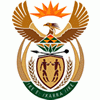
Jobs: The Department of Justice and Constitutional Development - Jun 2019
Jobs: The Department of Justice and Constitutional Development - Jun 2019 UrsulaRegional Head (02 Posts)
Reference: 19/71/Cs: Mpumalanga
Reference: 19/72/Cs: Mahikeng
Centre: Regional Offices: Mpumalanga And Mahikeng
Salary: R1 189 338 – R1 422 012 per annum (All inclusive remuneration package). The successful candidates will be required to sign a performance agreement.
Requirements: An undergraduate qualification (NQF7) in Social Science, B Com Law and / or Public Administration and Management; A post graduate qualification in Law or legal will be an added advantage; At least 6 years’ experience of which 5 years must be at senior managerial level; Relevant work experience in the field of Court/ Administration of justice/ Public Administration.
Enquiries: Ms. M. Kganyago (012) 315 1844
Director: ICT solutions quality assurance (contract appointment ending 30 September 2020)
Reference: 19/42/ISM
Centre: national office, Pretoria
Salary: R1 005 063 – R1 183 932 per annum. The successful candidate will be required to sign a performance agreement.
Requirements: A B-Tech/Honours Degree in Information System/ Technology/ Computer Science or equivalent qualification at NQF level 7; 8 years’ experience in Software Testing/Quality Assurance of which 5 year’s must be at middle or senior management level; Knowledge and experience in applying formal Software Testing/Quality Assurance methodologies, standards and tools are essential; Proven knowledge and experience in Automated Software and Application performance testing; Experience and certification in managing the software quality assurance process using HPQC (or similar) will be an added advantage; Software Testing/Quality Assurance certifications will be an advantage; Understanding of software version control and change management process will be an added advantage.
Enquiries: Ms. M. Qhamakoane (012) 357 8591
Senior family advocate - lP9
Reference: 23/19ec
Centre: Family advocate: Mthatha
Salary: R983 019 – R1 536 567 per annum (Salary will be in accordance with OSD determination). The successful candidate will be required to sign a performance agreement.
Requirements: An LLB Degree or recognized 4 year legal qualification; At least eight (8) years appropriate post qualification litigation experience; Admitted as an Advocate; The right of appearance in the High Court of South Africa will be an added advantage; Proven track record of managerial experience will be an added advantage; A valid driver’s licence.
Enquiries: Mr. P Hattingh (043) 702 7000
Deputy Director: Quality assurance
Reference: 19/47/FS
Centre: Regional office Bloemfontein
Salary: R733 257- R821 052 per annum (All inclusive remuneration package). The successful candidate will be required to sign a performance agreement.
Requirements: Three year Bachelor`s degree /National Diploma in Public Administration or equivalent (NQF level 6); Three (3) years management experience; Three (3) years’ experience in office and district administration; A valid driver’s license; knowledge of public Service Regulations, and PFMA, Knowledge of departmental finance instructions, prescripts and delegations. Knowledge and experience in office and court administration will be added as advantage.
Enquiries: Ms N Dywili (051) 407 1800
Deputy Director: Technical performance monitoring specialist (Contract appointment ending 30 September 2020)
Reference: 19/49/ISM
Centre: national office, Pretoria
Salary: R733 257 – R863 748 per annum (All Inclusive Remuneration Package). The successful candidate will be required to sign a performance agreement.
Requirements: A National Diploma / Degree in Information Technology or equivalent qualifications at NQF level 6; 5 years IT experience of which 1 year should be in networking and server administration environment; 3 year experience in Application Performance Monitoring (APM) using monitoring toolsets; Knowledge of the Microfocus toolsets and its implementation (e.g. OpsBridge, BSM-RUM, APM, Analytic, NNMI, etc.); Experience in implementing APM toolset/projects will be an added advantage; Relevant technical certifications will be an added advantage (e.g. MCSE, N+, Security+); A valid driver’s licence.
Enquiries: Ms. M. Qhamakoane (012) 357 8591
Service Delivery, Incident and Problem Management (Contract appointment ending 30 September 2020)
Reference: 19/41/ISM
Centre: National Office: Pretoria
Salary: R733 257 – R863 748 per annum (All inclusive remuneration package). The successful candidate will be required to sign a performance agreement.
Requirements: A National Diploma/Degree in Information Systems/Technology/Computer Science or an equivalent qualification at NQF6; 6 years’ experience in ICT Service Delivery or Service Support Management environment; 4 years’ experience in IT Operations Environment with focus on Incident Management or Problem Management; Knowledge and experience of ICT problems and incidents management processes including related ITIL processes; A relevant ITIL V3 foundation qualification; Knowledge and experience of ICT service level agreements formulation and management will be an added advantage; A valid driver’s licence.
Enquiries: Ms. M. Qhamakoane (012) 357 8591
Deputy Director: IT Security Specialist (Contract Appointment Ending 30 September 2020)
Reference: 19/50/ISM
Centre: National Office: Pretoria
Salary: R733 257 – R863 748 per annum (All inclusive remuneration package). The successful candidate will be required to sign a performance agreement.
Requirements: A National Diploma/ Degree in Information System/ Technology/ Computer Science or equivalent qualification at NQF6; At least 5 years IT experience of which 3 years should be in IT management role; Relevant IT Security Management certifications (e.g. CISSP, CCNP, CCSE or CISM); Knowledge and experience in working with the Trend Micro suite of products will be an added advantage; Relevant OEM certification (i.e. Trend Micro office scan, deep security will be an added advantage; A valid driver’s licence.
Enquiries: Ms. M. Qhamakoane (012) 357 8591
Senior Assistant State Attorney, (LP5-LP6)
Reference: 19/66/SA
Centre: State Attorney: Cape Town
Salary: R510 432 – R1 192 947 per annum (Salary will be in accordance with OSD determination). The successful candidate will be required to sign a performance agreement
Requirements: An LLB or 4 year recognized legal qualification; Admission as an Attorney; At least 4 years appropriate post qualification legal/litigation experience; Admission as a notary and conveyancer will be an added advantage; A valid driver’s licence.
Enquiries: Mr. E. Seerane (012) 315 1780
Senior Assistant State Attorney, (LP5-LP6)
Reference: 19/67/SA
Centre: State Attorney: Durban
Salary: R510 432 – R1 192 947 per annum (Salary will be in accordance with OSD determination). The successful candidate will be required to sign a performance agreement
Requirements: An LLB or 4 year recognized legal qualification; Admission as an Attorney; At least 4 years appropriate post qualification litigation experience; The right of appearance in the High Court; A valid driver’s licence; Conveyancing experience will be an added advantage.
Enquiries: Mr. M. Kooko (012) 315 1164
Court Manager (2 Posts)
Reference: 27/19/Lmp
Centre: Magistrate Mankweng
Reference: 60/19ec
Centre: Magistrate, Tabankulu
Salary: R470 040 – R553 677 per annum. The successful candidate will be required to sign a performance agreement.
Requirements: Three (3) year qualification in Administration (NQF level 6) and / or National Diploma in Services Management (NQF level 5) plus the module on Case Flow Management or equivalent qualification; At least 3 year’s managerial or supervisory experience; Knowledge and experience in office and district administration; Knowledge of Public Financial Management Act (PFMA); Experience in managing Trust (Third Party Funds) and Vote Account; A valid driver’s licence; Experience in the Court environment will be an added advantage;
Enquiries: Polokwane: Mr Maakamedi TP. (015) 287 2026 or Ms Mongalo MP. (015) 287 2037
Eastern Cape: Mr. Z Madlingozi (043) 702 7000
Copy Editor
Reference: 19/63/SLA
Centre: South African Law Reform Commission
Salary: R376 596 – R443 601 per annum. The successful candidate will be required to sign a performance agreement.
Requirements: Appropriate Degree / National Diploma or equivalent in English, Publishing, Journalism or Communication; At least 5 years appropriate post qualification editorial experience; Experience in the legal field or an academic field will be an added advantage.
Enquiries: Ms P Leshilo (012) 357 8240
Assistant Director: Labour Relations
Reference No: 19/60/KZN
Centre: Regional Office, Durban
Salary: R376 596 -R443 601 per annum. The successful candidate will be required to sign a performance agreement.
Requirements: A three (3) year National Diploma/Degree in Labour Law/ Labour Relations or relevant equivalent qualification (NQF level 6); At least 3 years’ relevant experience in supervisory/junior management position in the Labour Relations environment; A valid driver’s licence.
Enquiries: Mr L.N Sibiya (031) 372 3000
Assistant Director: Human Resource Plan
Reference: 19/68/HR
Centre: National Office, Pretoria
Salary: R376 596 – R443 601 per annum. The successful candidate will be required to sign a performance agreement.
Requirements: Bachelor’s Degree/National Diploma in Human Resources Management or equivalent qualification; 3 years’ experience as Human Resource Practitioner; Knowledge of Human Resource Prescript; Exposure in Human Resource Planning (HRP) will be an advantage
Enquiries: Ms N Joseph (012) 357 8646
Assistant Director: Financial Accounting
Reference: 2019/16/MP
Centre: Regional Office; Mpumalanga
Salary: R 376 596 – 443 601 per annum. The successful candidate will be required to sign a performance agreement.
Requirements: National Diploma or Bachelor’s Degree in Cost and Management Accounting or Financial Accounting/any Finance related qualification (NQF Level 6); Post graduate qualification will be an added advantage; a minimum 3 years’ experience in finance environment/field; 3 years relevant supervisory experience; Knowledge financial systems, such as Persal; PFMA and Treasury Regulations; A valid driver’s licence.
Enquiries: Ms NC Maseko: (013) 753 9300/224
Assistant Director Administration
Reference: 53/19EC
Centre: Magistrate, Port Elizabeth
Salary: R 376 596 – R443 601 per annum. The successful candidate will be required to sign a performance agreement.
Requirements: Appropriate three year Degree/National Diploma in Management/Administration or a relevant equivalent qualification at NQF6; At least three years junior/supervisory experience in the field of Finance, Administration and Human Resource Management.
Enquiries: Mr. Z Madlingozi (043) 702 7000
Assistant Director: Asset Management
Reference: 19/57/KZN
Centre: Regional Office (Supply Chain), Durban. Component: Supply Chain Management
Salary : R376 596 – R443 601 per annum. The successful candidate will be required to sign a performance agreement.
Requirements: An appropriate three year (3) Degree/National Diploma in Commerce, Accounting or Economics or relevant equivalent qualification NQF6; Minimum of three (3) years working experience in financial environment (Logistics; Fleet and Asset Management); A valid driver’s license; Knowledge of the Preferential Procurement Policy Framework Act (PPPFA), BBBEE and Treasury Regulations; Knowledge of Supply Chain Management Framework and Asset Management.
Enquiries: Ms N Maqoma (031) 372 3000
Assistant Director: SCM (Demand and Acquisition Management)
Reference: 19/44/KZN
Centre: Regional Office Durban
Salary: R376 596 – R443 601 per annum (The successful candidate will be required to sign a performance agreement)
Requirements: An appropriate three year Commercial/Administrative Degree/ National Diploma or relevant equivalent qualification NQF6; Five (5) years working experience in the Supply Chain Management environment with at least Three (3) years’ experience at a supervisory level; A valid driver’s license; Knowledge of SCM Framework; Knowledge of Preferential Procurement Policy Framework Act, (PPPFA); BBBEE and Treasury Regulations.
Enquiries: Mr L.N Sibiya (031) 372 3000
Maintenance Officer (Mr1- Mr5) (2 Posts)
Centre: Magistrate Court Umlazi: Ref No: 19/48/KZN And Magistrate Court Verulam: Ref No: 19/49/KZN
Salary: R198 411 – R912 504 per annum. (Salary will be determined in accordance with OSD determination). The successful candidate will be required to sign a performance agreement.
Requirements: LLB degree or recognized 4 year legal qualification. Basic knowledge and understanding of legal research principles; Knowledge of legal proceedings relevant to mediation, arbitration and conciliation
Enquiries: Ms V Mlandeliso (031) 372 3000
Registrar (MR-MR5) Regional Court Division, Eastern Cape
Reference: 61/19EC
Centre: Magistrate, Port Elizabeth (Responsible forll centres in Eastern Cape Regional Court Division)
Salary: R198 411 – R912 504 per annum. (Salary will be determined in accordance with OSD determination). The successful candidate will be required to sign a performance agreement.
Requirements: An LLB degree or equivalent qualification; A valid driver’s licence.
Enquiries: Mr. Z Madlingozi (043) 702 7000
Closing Date: 18 June 2019
Note:
Interested applicants may visit the following website: www.justice.gov.za or www.dpsa.gov.za to view the full job specification of the above positions.
Applications must be submitted on Form Z83, obtainable from any Public Service Department or on the internet at www.gov.za. A Z83 form & CV must be accompanied by original certified copies of qualifications, identity document and a driver’s license where necessary. A SAQA evaluation report must accompany foreign qualifications.
Applications that do not comply with the above mentioned requirements will not be considered. All shortlisted candidates for SMS posts will be subjected to a technical and competency assessment.
Candidate will complete a financial disclosure form and also be required to undergo a security clearance. Foreigners or dual citizenship holder must provide the Police Clearance certificate from country of origin.
Tel: 012 315 1111 Private Bag X81, Pretoria, 0001 Momentu

Marvellous meat-free delights
Marvellous meat-free delights Ursula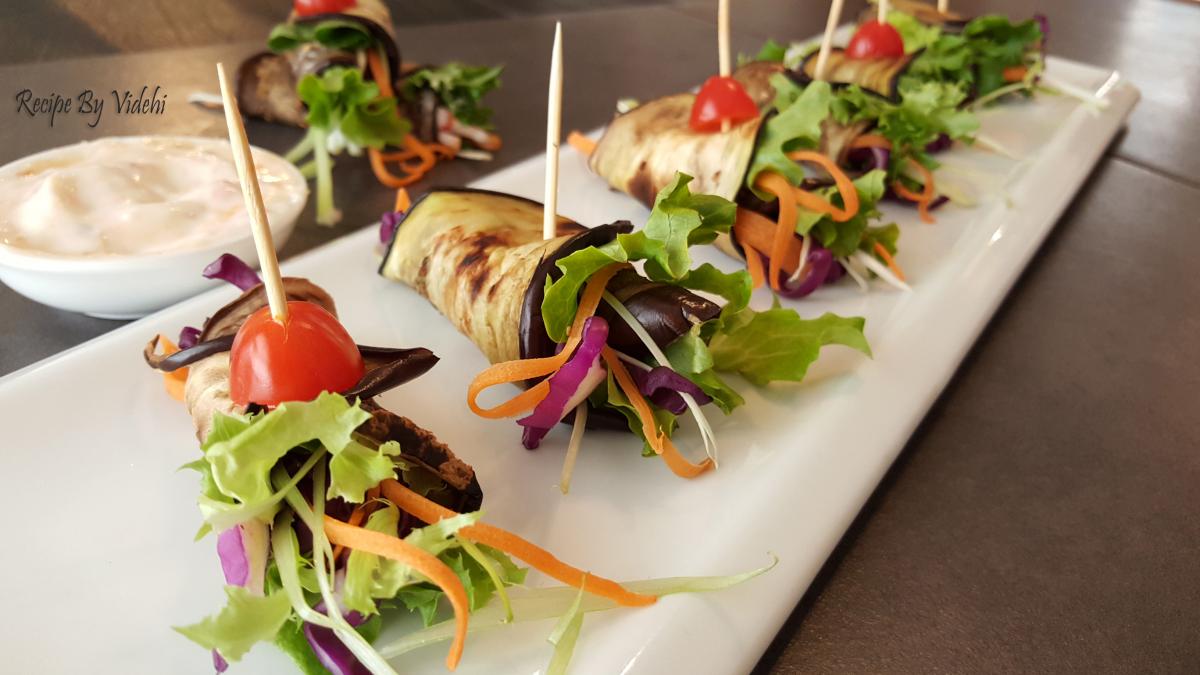
Take meat-free Monday to a new level with this delicious vegetarian meal. This healthy, delicious options is a sure-fire quick dinner winner. Local chef Videhi Sivurusan, a columnist, recipe creator, food blogger and former vegetarian chef on Lotus FM shares one of her favourites.
Brinjal wraps
Preparation: 10–15mins
Cooking time: 30mins
Ingredients
- 2 large brinjals
- 2 handfuls speciality lettuce or curly leaf lettuce
- 2 medium carrots, julienned
- 1 small red baby cabbage, finely sliced
- 4-5 springs onions, finely sliced lengthwise
Dressing (mix the following ingredients together in a bowl)
- 1 cup (250ml) vegan mayonnaise
- ½ cup (125ml) sweet chilli sauce
Directions:
Wash and slice brinjals lengthwise about 3mm thick (keep them as thin as possible). Heat a large non-stick pan on high heat. Fry the brinjals on both sides until they are cooked and slightly charred, once cooked remove and keep aside. You can add a drop of oil when frying the brinjals.
On a slice of cooked brinjal, layer some lettuce, carrots, cabbage and spring onions next to each other along the length of the brinjal slice. Add a small dollop of dressing and then roll up from one end like a Swiss roll and secure with a toothpick.
Serving suggestion: Perfect as starters or snacks.
Hot tip: The dressing can be replaced with hummus.
Meet the recycling Supa Mamas
Meet the recycling Supa Mamas angenithaIn 2012, Mike Maziya, the co-owner of manufacturing company Verigreen, noticed a woman carrying a bundle of plastic waste on her head. When he asked what she was doing, the woman said that she was unemployed and was selling plastic to recycling plants in order to earn a income.
Mike’s wife, Thina, was touched by this story of hardship and believed that there was an opportunity to uplift such women and help them earn better incomes.
“We are aware that the nature of the recycling industry is not lucrative and often those working in the collection processes are paid a non-sustainable rate,” explained Verigreen brand manager Kerry Herbert.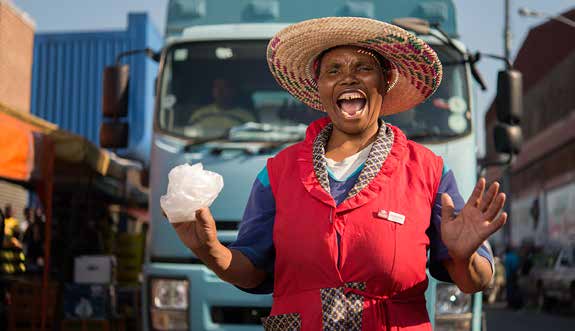
This is how the Supa Mama project was born. The project takes in hundreds of unemployed women in KwaZulu-Natal and empowers them through training.
“Our training programmes cover sorting and grading of recyclable material to better the women’s knowledge of the industry and assist them in ensuring good returns on the materials they collect,” explained Herbert. “We also give them entrepreneurial skills and we develop their life skills through, for instance, first aid courses.”
There are currently 300 women in the programme, who are paid good rates for collected materials.
“This is so that they can ensure the financial support of their families. Our goal is to empower these ‘Mamas’ to become microentrepreneurs and create a sense of belonging,” said Herbert.
Joice Sibisi, a single mother with three children, said that her life has been completely transformed through Super Mama.
“My firstborn child had to go into recycling like me, because I couldn’t afford to send her to school. But then I became part of the Supa Mama programme. Now my second child is wearing a white jacket, working with doctors. My youngest child is in Cape Town studying at university,” said Sibisi.
Another Supa Mama, Mtuzela Zulu, said that the programme has stopped her from having to beg on the streets.
“I love what I do because it is way better than begging for food elsewhere or at people’s households. I’ve learnt to always bring clean plastic for premium prices,” Zulu said.
Herbert says that it is a privilege to be able to uplift the communities around Verigreen’s areas of operation.
NYDA voucher a ticket to business success
NYDA voucher a ticket to business success vuyelwanThe National Youth Development Agency (NYDA) has a Voucher Programme that provides young entrepreneurs with business development opportunities.
Participants receive one-on-one business development support, between the values of R6 600 and R19 800, from an NYDA-accredited service provider.
“Each registered entity is entitled to a maximum of two vouchers as per their business development phase,” the agency said.
What services do the vouchers buy?
The NYDA said the vouchers are used to purchase business support services from approved service providers, including but not limited to:
- Business plan development;
- Business feasibility;
- Bookkeeping and financial administration;
- Business re-engineering;
- Website development and hosting;
- Business operations manuals;
- Marketing strategy and plan.
Who is eligible for a voucher?
Applicants must be between the ages of 18 and 35, be a South African citizen or a permanent resident and must be willing to attend entrepreneurship development training if they do not have an entrepreneurial or business management background and or qualification.
All members of the business entity must be between the ages of 18 to 35 and the business must be 100 percent youth-owned and operate within the borders of South Africa.
How to apply for a voucher
- The applicant must obtain an application form from www.nyda.gov.za or from any NYDA full-service office.
- They must then visit the nearest NYDA branch and submit the completed application form, along with certified copies of the IDs of members and business registration documents (if registered).
- An assessment is conducted to assess the application and determine if the business matches the services being applied for.
- If approved, the applicant needs to select an accredited service provider from the service provider directory (not supplier directory).
- On receipt of the voucher, the selected service provider provides the service and the applicant endorses the voucher on completion of the project.
- The service provider then submits the final product to the NYDA for payment.
“If the application is declined, the applicant is referred to an alternative business support service of the NYDA,” the agency said.
Once the service provider has rendered their service, the applicant has the option to endorse or decline the service provided.
For more information about this programme, applicants can contact the NYDA on 0800 52 52 52 or email info@nyda.gov.za
Nyaope destroys the body
Nyaope destroys the body angenithaA drug cocktail called nyaope, whoonga or wunga is destroying the lives of many young people in South Africa.
Addiction to nyaope is on the rise and has debilitating side effects on the health of users.
Nyaope, which has heroin as its main component, is a street level drug that is often mixed with antiretrovirals‚ tik‚ cocaine and cannabis.
It can lead to serious health conditions such as heart attacks, hepatitis B or C and lung-related diseases such as TB, said Pretoria West Hospital Family Physician, Dr Kuncheria Joseph. He said those who inject the drug are at a higher risk of heart-related illnesses than those who smoke it, who – in turn – are more at risk of lung disease.
“Your lungs become damaged by the smoke and you predispose them to flu, pneumonia and TB,” he said, adding that in the long run, the brain is affected too.
People who inject the drug often suffer valve failure, which means their heart function is dramatically reduced. Unclean needles can cause the hepatitis virus which damages liver cells. “They become scarred and hard,” said the doctor.
He said when the brain is affected, users lose the inability to reason, suffer memory loss and other mental health-related illnesses.
The drug, which is highly addictive, can also trigger mental illness among patients who have a genetic history of mental illness, he said.
“That’s one of the biggest concerns that we are faced with… We admit patients not because of the feelings of withdrawal but because of the effects of the drug on their brain. We see patients with psychotic conditions where they are hallucinating; they are delusional and have paranoia,” he said.
Joseph said some of the signs that a person is on nyaope include frequent stomach bugs, an inability to maintain good hygiene and mood swings.
GET HELP:
Call the Department of Social Developmentís substance abuse 24-hour Hotline on0800 12 13 14.
Parents are the primary teachers of children’s rights
Parents are the primary teachers of children’s rights angenithaPlay can be a useful tactic in teaching children about their rights but, above all, the South African Human Rights Commission (SAHRC) believes parents must walk the talk when it comes to the rights that they teach their children.
The SAHRC’s Child Rights Commissioner Angie Makwetla said it is important to showcase how rights should be respected. This includes parents respecting each other’s rights, parents respecting their children’s rights and parents respecting the rights of the people around them.
Makwetla said that while parents have the primary task of ensuring that children are informed of their rights, government plays a vital role too. “Parents have the responsibility to know their children’s rights, fight for their children’s rights and educate them about their rights” .
Government’s commitment to upholding the rights of children is demonstrated by the number of state entities mandated with this responsibility, including the SAHRC, which was established in terms of Chapter Nine of the Constitution. Children’s rights is one its focus areas. Other government organisations, including the Department of Education, are also mandated to educate society on human rights and children in particular on their rights, she said.
Makwetla said parents can teach children their rights through play. “This could be forming them into a song, acting them out in a drama, drawing out lessons from a real-life situation or through a board game,” she said.
It is essential that parents be on the lookout for signs that their children’s rights are infringed upon. She said some of the signs are: moodiness, excessive worry, weepiness, pain during urination or bowel movements, unexplained injuries and bed or clothes wetting or soiling.
Makwetla advised parents to read the African Charter on the Rights and Welfare of the Child. “The Charter has been signed and ratified by South Africa and highlights the responsibilities of children”.
According to the Constitution of South Africa, children have the right to;
- Dignity
- Education
- Family care or parental care or to appropriate alternative care when removed from the family environment.
- Be protected from maltreatment, neglect, abuse or degradation.
Presenters wanted for new NSFAS TV show
Presenters wanted for new NSFAS TV show vuyelwanA new TV show created by the National Student Financial Aid Scheme (NSFAS) is searching for presenters to create awareness of the scheme and assist those in need of financial aid.
NSFAS is currently looking for young, vibrant students across South Africa to present the 13-episode show, which will air during the 2020 NSFAS application season later this year.
The show aims to provide young people with information on how they can get financial assistance from the organisation to pay for tertiary education. said NSFAS spokesperson Kagisho Mamabolo. 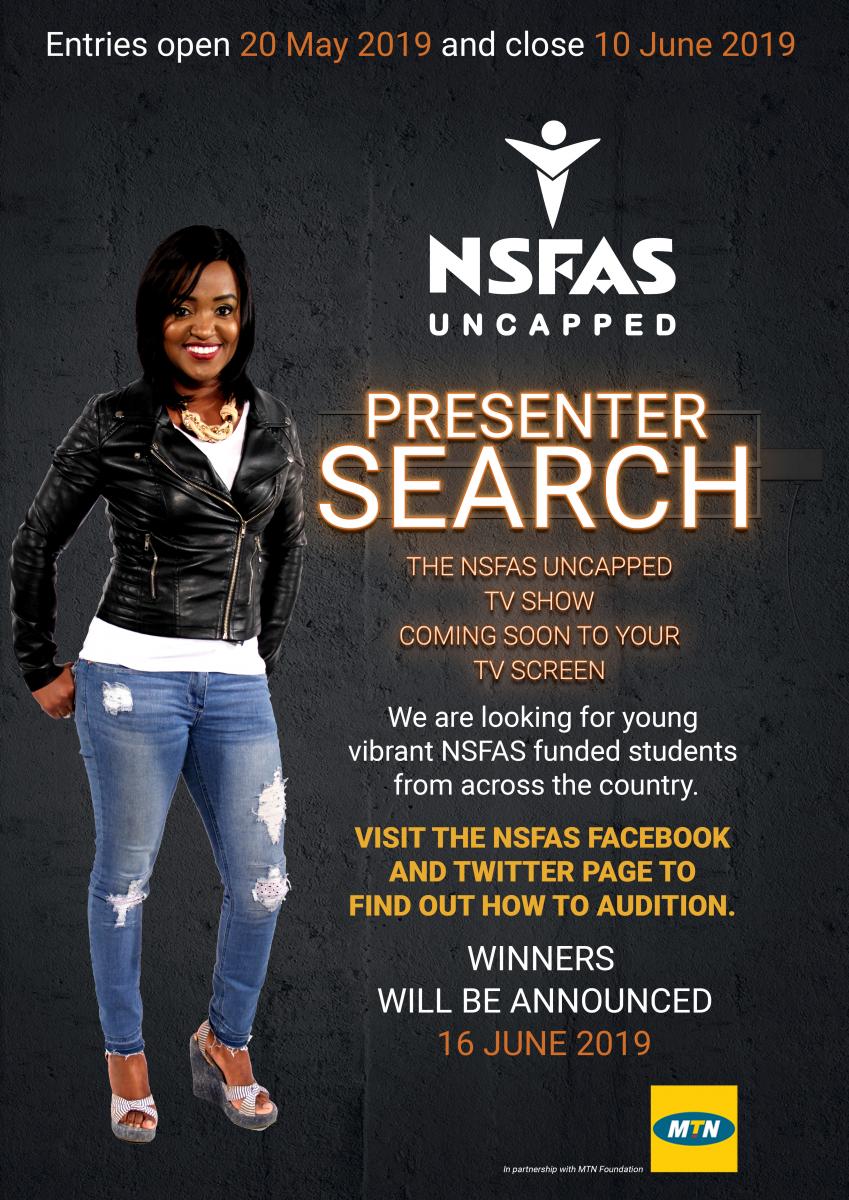
“Although NSFAS receives a high number of applications which exceeds 400 000 on a yearly basis, there remains a significant number of disadvantaged youth that still lack information on how to access NSFAS funding.
“This television show will provide a step-by-step guide on how youth from disadvantaged backgrounds can access funding from NSFAS,” NSFAS spokesperson Kagisho Mamabolo.
The show will include informative segments that will:
- show students how to apply for NSFAS funding;
- assist them with completing application forms;
- offer career guidance in line with government’s National Development Plan;
- showcase all higher learning institutions to help students choose the right institution;
- help students access allowances at university and TVET colleges; and
- give students clarity on challenges they might encounter.
Aspiring presenters must be current NSFAS beneficiaries.
“We believe that they have real experience of our funding and will be in a better position to relate to our audience.”
Mamabolo said the initiative would offer students skills in the form of presenting, as production crew, and media production.
The call for presenters had received overwhelming support from beneficiaries so far.
“We are humbled by the unique stories our beneficiaries are sharing with us,” said Mamabolo.
Mamabolo stressed that funds used to produce the NSFAS programmes were administration funding allocated by Treasury on an annual basis, and not on student funding allocation.
“NSFAS did not spend any funds as these were provided for by the partners, who have opted to finance the whole production process of the show.”
To enter the presenter search, all you need to do is create your own homemade 30-second audition video explaining how NSFAS has helped you as a student.
Post your video on your Facebook or Twitter page using the hashtag #NSFASPresenterSearch.
The top four entrants who receive the most likes or retweets on their entries during the competition period will be automatic winners. NSFAS will select a further five winners (their favourites) from all valid entries within two days from the closing of the competition.
Nine students will be chosen from the nine provinces (i.e. one from each province) in total, and a list of the selected candidates will be published.
Entries close on 10 June 2019 at midnight (00h00/12AM). All winners will be subjected to NSFAS verification processes and announced on 16 June 2019.
Visit the NSFAS Facebook and Twitter pages for more information.
Presidential Inauguration
Presidential Inauguration vuyelwanPresidential Inauguration showcases a rainbow nation
Presidential Inauguration showcases a rainbow nation LondekileRemember your heritage while shaping your future
Remember your heritage while shaping your future angenithaYour heritage gives you a sense of identity and rootedness – it is essential to building your future, believes a young academic.
If you do not know where you come from, you cannot know where you are going – that is why understanding your culture and heritage is important.
This is according to Thapelo Mokoatsi (29), who is a History PhD candidate at Rhodes University in Makhanda, Eastern Cape. 
Mokoatsi spoke to Vuk’uzenzele as South Africa commemorates Youth Month, which is celebrated in June, with a specific focus on 16 June, which is also known as Youth Day.
Mokoatsi said the youth of 1976 paved the way for the generations that came after them, especially black youth, through their bravery and resilience in a fight for better education.
“The generation of 1976 comprised a collection of individuals who were very much aware of their generational consciousness. They decided that they would not continue to be taught in a language that oppressed them,” he said.
Today, South African youth enjoy access to better educational opportunities because of the legacy left by the youth of 1976 and those who took the baton from them.
“Young South Africans have been doing great things, especially black women my age who are completing their PhDs and becoming top academics. This is what South Africa needs,” he said.
However, Mokoatsi believes that young South Africans, especially black people, still have a long way to go before they can fully enjoy the fruits of democracy that the country attained 25 years ago.
“To be a young South African today means that you constantly have to play catch-up. Knowledge of self through one’s own perspective is lacking, and that is because our history is soiled by colonial forces… South African youth need to start realising that the messaging about providing for their needs is not helping them anymore,” he said.
One of the contributing factors, to the problems that young people face is not knowing their history and heritage very well.
“I encourage young people to read as much as they can and to embrace education because it is the best way to access the treasures our ancestors left us – our heritage!” he said.
SA wears its Coat (of Arms) with pride
SA wears its Coat (of Arms) with pride UrsulaAs South Africa celebrates and reflects on 25 years of freedom this year it’s fitting to also reflect on our nation’s Coat of Arms, which was launched on Freedom Day, on 27 April 2000.
 The most important moments of our life are endorsed by our Coat of Arms. From its presence on birth, matric, marriage and death certificates to its proud positioning on the money in our pockets, the Coat of Arms is a constant reminder of how proudly South African we are.
The most important moments of our life are endorsed by our Coat of Arms. From its presence on birth, matric, marriage and death certificates to its proud positioning on the money in our pockets, the Coat of Arms is a constant reminder of how proudly South African we are.
The Coat of Arms was launched by former President Thabo Mbeki in Kwaggafontein, Bloemfontein, in 2000, replacing the one that had been in place since 17 September 1910. Its launch highlighted the democratic change in the country and a new sense of patriotism.
Often called the state emblem or great seal, the Coat of Arms is the state’s highest visual symbol. In fact, absolute authority is given to any document on which it is printed because this means it has been approved by the President.
The Coat of Arms features two ovals, one on top of the other, symbolising infinity. The various elements inside each oval all have their own meaning.
SAPS given a pat on the back
SAPS given a pat on the back vuyelwanPolice officers who provided safety and security during the Presidential Inauguration ceremony received a special thank you from out-going Police Minister Bheki Cele.
The monumental event took place at the Loftus Versfeld Stadium in Pretoria, for the first time.
Scores of South Africans made their presence felt when President Cyril Ramaphosa was being inaugurated on Saturday.
Minister Cele thanked the officers who were tasked with keeping peace and order at the event whilst also ensuring that all those in attendance were safe.
At the event police officers were deployed in several roles such as crowd control, protection of special dignitaries and the President.
Over 2 000 police officers were deployed in and around the stadium vicinity.
Speaking after the address Cele said the police had done sterling work in ensuring that everything went smoothly.
“Up to this point I have not heard any complaints coming here. We will be pulling our reports together but up to this point we have not heard any complaints.”
Minister Cele called on the law enforcement officers to use the same tactics they had used at the inauguration to make South Africa a safer place.
“It is our call that the spirit that you have created, the standards that you have created please keep it up and make sure South Africans are safe.”
New cabinet announcement
Meanwhile The Presidency has released a statement announcing that the new cabinet will be announced later this week.
“The Presidency wishes to advise that the announcement will be made later in the week. The Constitution of the Republic stipulates that the President must assume office within five days of being elected by the National Assembly – and thereafter appoint a Cabinet and assign its powers and functions,” said President Cyril Ramaphosa’s spokesperson Khusela Diko.
She added that the President would appoint a cabinet of competent personnel.
“President Cyril Ramaphosa is emphatic that the new executive must possess requisite skills, experience, representivity and a commitment to the public services that will take the work of the sixth administration forward.”
Support for Free State farmers
Support for Free State farmers vuyelwanFarmers in the Free State are to benefit from a new Farmer Production Support Unit (FPSU) which was recently launched by the Department of Rural Development and Land Reform (DRDLR).
The FPSU will assist farmers by providing logistical needs such as setting up of a mechanisation unit, a packhouse and training workshop facilities.
Farmers also received machinery that would assist in the production of their crops.
Farmer Letsholo Makgalemela said the programme will assist in making farming easier.
"Previously it was a challenge for us to do farming because we struggled to raise funds to hire tractors, but now with the new machine we are happy because we will able to feed our families," said Makgalemela.
The launch was attended by the *Minister of Rural Development and Land Reform Maite Nkoana-Mashabane who said through the FPSU about R50 million was spent in machinery, equipment, construction of the facilities for packaging potatoes and beans and production inputs for the farmers in Makholokoeng and surrounding areas.
“This is the post-settlement support that the department provides to ensure farmers’ operations are not hampered by lack of resources and to ensure that they run viable businesses,” she said.
“The support is being advanced to nine cooperatives of 135 farmers. Our aim is to boost food security and alleviate poverty.”
The FPSU programme was part of a broader plan by the department to support farmers countrywide.
According to the department, the FPSU programme is aligned with the Agri-parks programme.
“Agri-parks have been put forward by the Department as smallholder farmer or cooperative-led rural development networks achieving the national goals of inclusive rural development and integration, employment creation, poverty eradication and inequality reduction,” said Minister Nkoana-Mashabane.
The department plans to open two FPSUs in all the country’s district municipalities.
The people's President
The people's President Londekile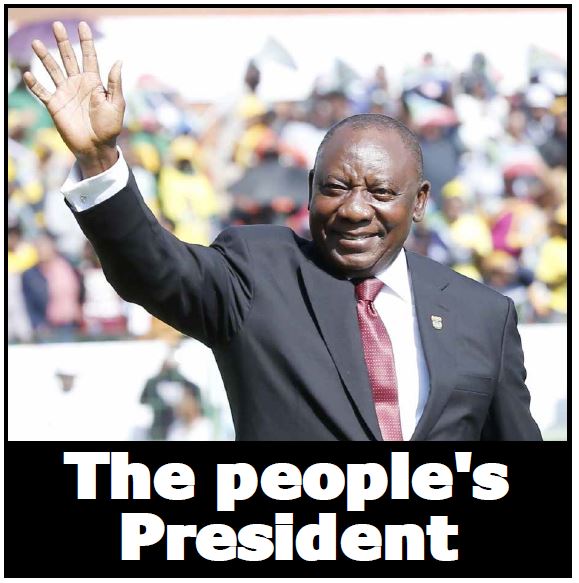
Townships hold netball treasure
Townships hold netball treasure UrsulaA premier league netball player from Wattville in Gauteng believes that the Netball World Cup to be held in Cape Town in a few years’ time, will open doors for township players.
 The 2023 Netball World Cup – to be hosted by South Africa – could open dream opportunities for young netball players, believes up-and-coming star Precious Maseko(23).
The 2023 Netball World Cup – to be hosted by South Africa – could open dream opportunities for young netball players, believes up-and-coming star Precious Maseko(23).
Maseko, a member of the Brutalfruit Netball Premier League team, the Gauteng Jaguars, said many talented players lie undiscovered in townships and rural area.
Using the Jaguars – which is based at the University of Pretoria where she is studying Sports Science, Maseko pointed out that unless you attend the university, you might not be aware of trials.
The goal-attack cum wing-attack player elaborated that netball teams need to restructure their development strategy.
Maseko said if teams invest more into going into rural areas to recruit players, they would be able to unearth more talent.
“I think the biggest challenge is the top teams don’t really recruit everywhere in the country. They only look at developed schools, feeder schools and specific areas,” she said.
Maseko, who hails from Wattville in Benoni, said she hopes to represent South Africa at the World Cup.
She started playing netball to fill in the long gaps between the athletics seasons but today is a netball diehard who hopes to one day ply her trade overseas because of the many opportunities abroad to be a professional player.
This is her first season with the Jaguars and she is loving the opportunities that being a premier league player has given her. It is because of how netball is helping to shape her life that she would like to see more township recruitment taking place.
She said players should use the World Cup platform to shine. “Players who represent South Africa at the World Cup will get a reasonable income,” she said, as well as being exposed to leading figures in international netball.
Earlier this year, South Africa beat New Zealand’s Auckland to be awarded the rights to host the 2023 showpiece.
Venturing into the business of fashion
Venturing into the business of fashion angenithaDesigning clothes for her dolls as a little girl inspired Eulenda Sambo (33) to become a fashion designer, and now she gets to dress people instead of toys.
Growing up in Daantjie in Mpumalanga, Sambo used to watch her mother sew curtains at home. One day, her parents bought a toy sewing machine for her, which functioned similarly to a real machine.
She would cut her mother’s head-wraps to create clothing for her dolls, which she would sew using her toy machine. Little did she know that one day she would own a fashion design business called Eullydoll Designs and Screen Printing. 
She is the sole owner of the company, which she established in 2010.
“The first item I made for myself was a skirt cut out from my late dad’s camouflage jacket while I was a Grade 10 learner. It was hand sewn,” Sambo said.
“I do not have a fashion design qualification; I taught myself everything I know,” she said.
When she arrived in Pretoria to study for a qualification in media studies and journalism almost a decade ago, the first few places she familiarised herself with were fabric shops in the city centre and throughout her tertiary years, she used to wear her own hand-crafted designs.
Today, she designs and manufactures clothes for clients in Mpumalanga, Limpopo and Gauteng.
She has dressed individuals who participated in events such as the Miss Mpumalanga and Miss Tourism Universe South Africa beauty pageants.
Her company was invited to Torino in Italy to showcase its very first ready-to-wear 20-piece collection at Torino Fashion Week 2018 and again this year, to showcase 25 ready-to-wear designs at the 2019 event.
Sambo is also looking forward to Mozambique Fashion Week 2019, where she will also be showcasing a collection of 15 ready-to-wear pieces.
“This was made possible by the support I received from the Small Enterprise Development Agency (SEDA) and the National Youth Development Agency (NYDA),” she said.
SEDA helped her address the challenges her business faced, including the lack of proper marketing tools and limited business management skills.
Through these interventions, Sambo managed to get more customers, make more profit and is able to manage her business better.
Sambo works from home and has managed to create two permanent jobs through her business.
“I design and sew the clothes. My mother also assists with finishing touches,” she said.
She hopes to create more jobs in the future, once the company has its own studio.
“I honestly believe that as women in business, we have the power to move mountains, but we have to start by moving stones first,” she said.
National Information Centre
Tel: 0860 103 703 Email: info@seda.org.za
SEDA: www.seda.org.za
Working on Fire participants spread their wings
Working on Fire participants spread their wings angenithaWorking on Fire (WOF) is a government-funded job-creation programme that not only helps minimise fires in South Africa but opens doors for youngsters.
Government’s WOF programme is proving to be an good example of how the Expanded Public Works Programme (EPWP) can lay the perfect platform for young people to reach their dreams.
WOF employs over 5 000 young men and women from disadvantaged communities around South Africa, training them as firefighters. By gaining work experience and skills, many of these youth go on to become fully employed in various fields. 
Formerly a WOF employee, Hilda Ditshwele is now living her dream of being a police officer. She joined the WOF EPWP in 2012 and began gaining vital skills that she would have never previously had an opportunity to learn.
After five years at WOF, Ditshwele heard that the South African Police Service (SAPS) was recruiting new police officers. She decided to apply.
“I became confident that I can achieve anything in life. The SAPS was impressed with my fitness and I was immediately recruited to go to training college,” Ditshwele said.
Today, she is a proud police constable who plans to study criminology and forensic science.
Other WOF participants are also starting promising new careers, thanks to the programme.
Abelo Duna joined WOF in 2011, and his hard work saw him quickly being promoted to team leader.
“I had to work hard and prove that I deserved to be in a leadership position,” said Duna.
He decided to use his monthly stipend to further his college education and in 2015, he passed an online occupational health and safety management course with Oxbridge Academy. He went on to enrol for a National Diploma in Safety Management at University of South Africa in December 2018. A month later, he was employed as WOF’s occupational health and safety administrator for Limpopo.
*Youth interested in joining WOF can visit: www.workingonfire.org.
YES initiative gives youth wings to fly
YES initiative gives youth wings to fly vuyelwanThe Youth Employment Service (YES) initiative aims to offer one million unemployed youth paid-work experiences over a period of three years.
A brainchild of President Cyril Ramaphosa, the programme aims to prepare young people for employment and provide them with the technical skills needed to underpin the industrialisation of the economy.
YES is also a joint effort by government, labour and business ensuring that young people of South Africa are prepared for the employment sector.
To date, the YES initiative has managed to secure 17 000 work opportunities for unemployed youth.
If you are a young person and you would like to be part of the YES Initiative, here is what you need to know:
What is the qualifying criteria for youth to be part of the YES programme?
YES youth must be:
- black, in accordance with the Black economic Empowerment definition.
- between the ages of 18 – 34 (as this is the definition of youth); and a South African citizen.
The YES programme is not for young people who want to change jobs but rather for currently unemployed youth.
Do you need a qualification to be part of the YES initiative
YES is aimed at all unemployed black youth between the ages of 18-34 years, regardless of the level of education you have obtained.
Are you able to help youth that live in rural areas?
YES is aimed at all unemployed black South African youth, wherever they are situated in the country.
Does YES provide non-governmental organisations (NGOs) and small businesses with funding opportunities, office space and/or equipment?
The type of support that YES offers to businesses and NGOs is non-financial, through capacity development as well as placing a young person in their businesses as a resource. Unfortunately, we are unable to provide funding, office space, equipment or connections to other stakeholders.
Does YES provide funding to young aspiring business owners?
YES does not offer financial support to young aspiring business owners. However, we can assist new small businesses by capacitating them with fresh, young and creative youth.
I am running a small business and I would like to host YES youth, but I cannot pay their salary. How can I get involved in YES?
Sponsored host placements are a part of the YES programme. Corporates who meet their YES target can choose to place the youth in their own business or at a host small business through a sponsored host placement, at no cost to the host. The young person will work in the host business for 12 months and will be paid by the sponsor company.
Can I choose the youth I want to host?
Yes, you can. We will work with you to select the right person for your organisation.
Can the same youth be sponsored for more than one year?
No, YES youth are sponsored for a period of one year. If you decide to absorb your YES youth after the year-long period, then you will be responsible for salary payments.
I have already registered. When will the placement of work opportunities start?
We are currently in the process of creating work opportunities, which is a complex and lengthy process.
However, our team is working tirelessly to fulfil our mandate of creating one million work opportunities for the unemployed youth of South Africa. Once we have created these experiences, we will then begin to make placements. If you have registered, we will be in touch with you.
How do I register
Please log onto our website: www.yes4youth.co.za/youth-registration and register as a YES youth.
Young farmer gets a boost
Young farmer gets a boost vuyelwanThe winner of the Gauteng Young Farmer’s Award 2018/2019 is one of the latest beneficiaries of a government-run programme to help developing farmers establish Nguni cattle herds.
A young award-winning farmer who is making her mark in the agriculture sector now aspires to be the next big Nguni cattle producer in South Africa.
Lerato Senakhomo (27), who runs Senakhomo Farming, wants to produce top cattle herds using the 72 Nguni cattle she was loaned by the Gauteng Department of Agriculture and Rural Development as part of its Nguni Cattle Improvement Project.
“I want to become a commercial breeder and sell the animal hides,” she said.
Her 535-hectare farm, based in Nigel in Ekurhuleni, is involved in several aspects of farming, including bale production, sheep farming and now Nguni cattle breeding.
Senakhomo received the farm in 2014 through the Department of Rural Development and Land Reform’s land reform project and in February this year, she qualified for the Nguni Cattle Improvement Project, which seeks to re-introduce the Nguni breed into black farming communities.
She said that programme has taught her many aspects of cattle farming, including the importance of having a clear understanding of the breed, the process of registering calves and the importance of vaccinations.
Farmers who hope to participate in the programme have to meet several requirement: They must be black – as defined in the BBBEE Act 53 of 2003, be South African citizens living in Gauteng and they must have access to a minimum of 500 hectares of land suitable for cattle farming. There are a number of other requirements that relate to infrastructure and security, among other things.
Successful applicants receive a set number of pregnant Nguni females and one Nguni bull as a conditional loan which must be repaid within five year by returning an equivalent herd or through the payment of a sum of money equal to the value of the initial herd.
For more information on the Nguni Cattle improvement project call 011 240 3325.